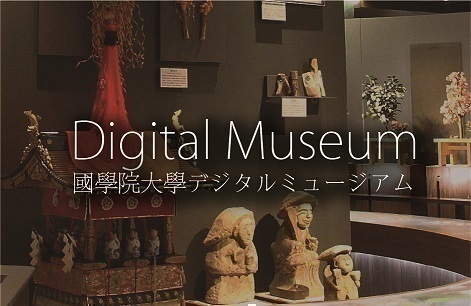- トップ
- Encyclopedia of Shinto
- Kamigakari, takusen
Encyclopedia of Shinto
| Main Menu: | |
| Links: |
詳細表示 (Complete Article)
| カテゴリー1: | 6. Belief and Practice |
|---|---|
| カテゴリー2: | Divination and Supplication |
| Title | Kamigakari, takusen |
| Text | Kamigakari refers to the possession of a person by a kami or other spirit. It is often followed by takusen, whereby the possessed person serves as a "medium" (yorimashi ) to communicate the divine will or message of that kami or spirit. Also included in the category of takusen is "dream revelation" (mukoku), in which a kami appears in a dream to communicate its will. Kamigakari, or spirit possession, is generally accompanied by a physical and mental transformation. To induce that state, other people present produce sounds using a koto, bell, shakujō staff, or other implements, continuously intone incantations, and voice loud cries of encouragement. In a ceremony called yudate, a person becomes possessed in the process of walking around a pot of boiling water while sprinkling the water on his or her body with "bamboo grass" (sasa) leaves. Children and women most often deliver takusen as mediums due to the belief that they can more readily enter a state of possession. In days of old, "female shamans" (miko) once performed spirit possession and takusen as vocational functions in their service to shrines. As time passed, they left the shrines and began working independently in secular society. Miko at shrines today do no more than sit at reception counters and perform kagura dance. In addition to a medium or a miko (or a geki, which is a male shaman), the site of a takusen may occasionally also be attended by a saniwa who interprets the words of the possessed person to make them comprehensible to other people present. Kamigakari and takusen may be passive, when a person speaks after suddenly becoming involuntarily possessed or has a dream revelation; they can also be active, when spirit possession is induced in a specific person to ascertain the divine will or gain a divine revelation. Documented examples of passive cases include the divine pronouncement of the kami Usa Hachiman to enthrone the Buddhist monk Dōkyō (?-772) as emperor and the vengeful words of Sugawara Michizane, a famous political figure at the Heian court who fell victim to political intrigue, whose angry spirit possessed the child of a kannushi priest at Hira, Ōmi Province (present-day Shiga Prefecture). A prominent example of active spirit possession is that of of Empress Jingū (Jingū Kōki ), which is documented in Kojiki and Nihon shoki (collectively referred to as Kiki ). Another example is the subsequent oracle obtained from Usa Hachiman by Wake no Kiymaro in opposition to Dōkyō. Kamigakari and takusen fulfilled important political functions in ancient Japan and were later also perceived as important means of learning the divine will. In modern times, they have occasionally been involved in the formation of new religious movements. —Suzuki Kentarō |




